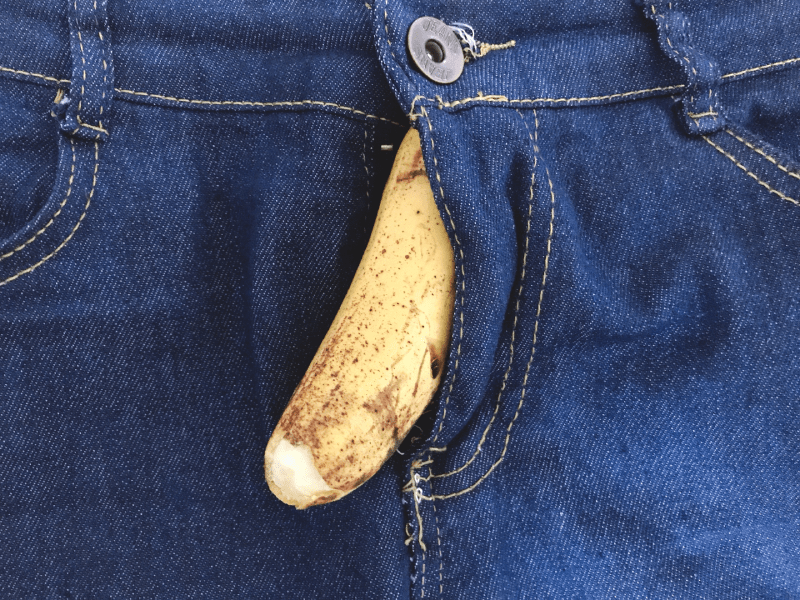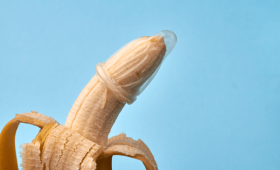How Is The Risk Of Post-Operative Infection Managed?
The risk of infection after penis enlargement surgeries is a fundamental complication common to all surgical procedures. This risk increases, especially when care is not taken with wound hygiene. In modern facilities across Turkey, meticulous sterilization protocols are applied during the operation to prevent infection, and protective antibiotics are usually prescribed post-surgery. The patient’s strict adherence to doctor’s instructions, keeping the wound area dry and clean, plays a critical role in minimizing the risk of infection. It must be remembered that infection can be controlled with early diagnosis and treatment.
What Complications Can Arise Related To Anesthesia?
Penis enlargement surgeries are generally performed under general or regional anesthesia. While complications related to anesthesia are rare, conditions such as allergic reactions, respiratory problems, cardiac arrhythmia, or nausea can occur. In well-equipped hospitals in Turkey, anesthesiologists conduct a detailed health screening before the operation to assess and minimize risks. When planning a surgical procedure in Turkey, the presence of an experienced anesthesia team should always be a priority.
Is There A Risk Of Excessive Bleeding During The Surgery?
The risk of excessive bleeding during the surgery is inherent to the nature of the operation. Since penile tissue has a rich vascular structure, hemorrhage control is important during surgery. Experienced surgeons reduce this risk by preserving vascular structures and keeping bleeding under control. Discontinuing blood-thinning medications used before the surgery is one of the measures taken to manage the risk of bleeding. In Turkey, these types of operations are performed by surgical teams prepared for emergency situations.
Is Ligament Damage A Risk In Lengthening Surgeries?
Penis lengthening surgeries require the partial cutting of the suspensory ligament, which attaches the penis to the pubic bone. This incision allows the internal part of the penis to move outward. Cutting the ligament completely or excessively can negatively affect the penis’s stability and angle during erection. Therefore, it is of great importance that the surgeon performing this procedure in Turkey is an expert in balanced ligament release to reduce functional risks.
What Is The Risk Of Fat Transfer Failure In Girth Surgeries?
In fat transfer, the most common method used in girth (thickening) surgeries, there is a risk that a portion of the transplanted fat cells will be reabsorbed by the body over time. This reabsorption rate can vary from person to person, generally ranging between 20% and 50%. This means the thickening may not be as permanent as expected. Some specialists in Turkey may prefer to use advanced techniques, such as fat transfer enriched with stem cells, to reduce this risk.

Can Asymmetry In Penis Shape Be Seen Post-Surgery?
The risk of asymmetry or irregularities in the penis shape is present after thickening procedures, especially those done with fat transfer. Uneven distribution of fat around the penis or greater reabsorption of fat in certain areas during the healing process can lead to asymmetry. To minimize this risk, surgeons in Turkey take care to inject the fat in a layered and controlled manner. Minor asymmetries usually improve over time or may require a touch-up procedure.
Is Loss Of Sensation Or Decreased Sensitivity Permanent?
Temporary loss of sensation or decreased sensitivity is common in the post-operative period, as surgical incisions can temporarily affect nerve endings. This condition usually resolves spontaneously within a few weeks or months. However, in very rare cases, there is a risk of permanent loss of sensation or decreased sensitivity due to significant nerve damage. Before undergoing an operation in Turkey, it is important to discuss nerve-sparing techniques with your surgeon.
Can Lump Formation Occur After Girth Surgery?
After thickening surgeries using fat injections or fillers, there is a risk of lump formation (nodule formation) due to the irregular pooling of the injected material under the skin. These lumps can usually be corrected with massage or secondary procedures. Experienced surgeons in this field in Turkey try to reduce this risk by using special cannulas to ensure homogeneous distribution.
Is The Urinary Function Affected By The Surgery?
Penis enlargement surgeries do not adversely affect urinary function unless the urinary tract (urethra) is directly interfered with. However, temporary difficulty in urination may be experienced due to post-operative edema (swelling) and discomfort during the first few days. The urinary tract is usually protected during thickening or lengthening procedures, but it is important to be under the supervision of a specialist urologist in Turkey for possible complications.
Will The Post-Operative Appearance Be Satisfactory?
Post-operative appearance satisfaction is related to the combination of surgical success and the patient’s realistic expectations. Scars, slight curvature, or failure to achieve the expected growth rate due to surgical risks can cause disappointment. Surgeons in Turkey aiming for the best results try to manage the patient’s expectations by providing detailed simulation and visual consultation before the operation.
What Should Be Done If Sufficient Lengthening Is Not Achieved?
Failure to achieve the full expected lengthening is a risk in lengthening surgeries. The structure of the ligament, the internal reserve of the penis, and the surgical technique affect this outcome. If sufficient lengthening is not achieved, a second touch-up operation or long-term use of extending devices (extenders) may generally be recommended. Revision surgeries for such situations can be planned in Turkey.
How Long Does The Post-Operative Pain Last?
Post-operative pain is usually intense for the first few days and is easily controlled with prescription painkillers. The level and duration of pain depend on the person’s pain threshold and the extent of the surgical procedure performed. Hospitals in Turkey will provide you with detailed instructions to manage pain even after you are discharged. Generally, the pain subsides significantly within 1-2 weeks.

When Should Sexual Activity Be Resumed?
The recovery time for resuming sexual activity depends on the type of surgery and your healing rate, but it is generally recommended to wait between 4 and 8 weeks after the surgical procedure. Complete healing of the penis and fusion of the stitches are vital during this period. Surgeons in Turkey strictly advise waiting this period to preserve tissue integrity and prevent possible wound dehiscence.
How Permanent Is The Surgical Scarring?
Penis enlargement surgeries leave scars in the pubic area for lengthening or at the injection points for thickening. With modern techniques applied in Turkey, these scars usually remain minimal and fade over time, approaching the skin tone. However, every scar is permanent. Your surgeon’s suturing techniques and your skin type are the most important factors determining the appearance of the scar.
How Is Uneven Fat Reabsorption Detected After Fat Transfer?
Uneven fat reabsorption after fat transfer is usually understood within 3 to 6 months by observing thickening being more pronounced in some areas or an irregular, lumpy appearance on the shaft of the penis. This situation can be aesthetically disturbing. If you had an operation in Turkey, your surgeon will assess this condition during your post-operative follow-up and recommend small touch-ups if necessary.
Is There A Risk Of Blood Clot Formation Post-Surgery?
As with any major surgical procedure, there is a rare risk of deep vein thrombosis (DVT), or blood clot formation, in penis enlargement surgeries. This risk increases especially during long operations and periods of immobility. Hospitals in Turkey try to prevent this risk by encouraging early movement after surgery and sometimes using blood-thinning medications.
Are Permanent Changes In Penis Angle Experienced?
Since lengthening surgeries involve cutting the ligaments that hold the penis, they can cause ** permanent changes** in the angle of the penis during erection. The penis may rest at a more downward angle than before. Surgeons in Turkey aim to manage this effect by choosing to partially release the ligament instead of fully cutting it to preserve functionality.
What Are The Psychological Effects Of The Surgery?
The psychological effects of surgery are twofold: successful results can significantly boost self-confidence and body image, while complications or failure to achieve the expected result can lead to disappointment and depression. It is of great importance for those seeking surgical solutions in Turkey to establish realistic expectations and prepare psychologically before the surgery.
What Is The Possibility Of Cavernous Tissue Damage?
The possibility of damaging the cavernous tissue (spongy tissues that provide erection) during penis enlargement surgeries is low, but not zero. Incorrect surgical techniques or unexpected anatomical structures can increase this risk. Cavernous tissue damage can lead to permanent erection problems. To prevent this risk, it is essential that the surgeon performing the operation in Turkey is specialized and experienced in urological surgery.
When Does Post-Operative Edema And Swelling Subside?
Post-operative swelling (edema) is inevitable. The swelling peaks in the first few days, but largely subsides within 2 to 3 weeks with ice application and doctor’s advice. It may take 3 to 6 months to fully heal and see the final result. This temporary swelling should be considered normal during your recovery process in Turkey.
Is There A Risk Of Long-Term Functional Impairment?
The risk of long-term functional impairment depends on the quality of the surgical technique. Unsuccessful lengthening or thickening procedures can lead to permanent dysfunctions in erection, sensation, or urinary function by causing problems such as scar tissue formation, nerve damage, or curvature (Peyronie-like development) over time. Specialists in Turkey use current techniques to minimize these risks.
Can Penis Curvature (Peyronie’s Disease-Like) Occur?
During tissue healing and scar formation after surgery, especially in thickening procedures, there is a rare risk of penis curvature or the formation of Peyronie’s disease-like fibrous tissue. This condition can cause the penis to bend at an abnormal angle during erection. Post-operative massage and special exercises in Turkey are important steps aimed at reducing this risk.

How Permanent Are The Surgical Results?
The permanence of surgical results depends on the procedure performed. The results of lengthening surgeries are generally permanent. In thickening procedures, while some of the fat transfer may be reabsorbed, the remaining fat cells are permanent. When synthetic fillers are used, the duration of permanence varies depending on the type of material. For every procedure planned in Turkey, your surgeon will clarify the expected duration of permanence.
Is Wound Dehiscence Or Delayed Wound Healing Possible?
Wound dehiscence or delayed wound healing can occur, especially in the early post-operative period, due to factors such as physical strain, infection, or smoking. This condition requires secondary suturing or longer wound care. Adhering to post-operative care instructions in Turkey is the most crucial rule for the safe healing of the stitches.
What Is The Possibility Of A Second Surgery (Revision)?
The need for a second surgery (revision) may arise due to conditions such as post-operative asymmetry, insufficient growth, or lump formation. The likelihood of revision varies depending on the surgeon’s experience and the success of the initial procedure. Some patients in Turkey may prefer revision procedures to achieve a better result or to supplement the fat reabsorbed over time.
What Are The Risks For Patients With Blood Pressure Problems?
The risks of penis enlargement surgery can increase for patients with high or low blood pressure problems. Uncontrolled high blood pressure increases the risk of bleeding during surgery and complicates healing. To be eligible for surgery in Turkey, your blood pressure must be lowered to safe levels determined by the anesthesiologist and your surgeon before the operation.
Can Diabetic Patients Undergo Surgery?
Diabetic patients can undergo surgery if their blood sugar levels are well controlled. However, diabetes slows down wound healing and increases the risk of infection. Therefore, diabetic patients must undergo a comprehensive evaluation by an internal medicine specialist and have their blood sugar management closely monitored throughout the surgical period before undergoing such surgery in Turkey.
Does The Cost Of Surgery Cover The Risks?
The cost of surgery generally covers the standard surgical procedure, hospital fees, and initial check-ups. However, the treatment of possible complications (e.g., infection or additional revision surgeries) may not be included in the initial cost. Although some health tourism packages in Turkey offer complication insurance options, it is important to clarify the cost risks in advance.
How Often Should Routine Post-Surgical Check-ups Be Done?
Routine post-surgical check-ups are generally done more frequently during the first year following the surgery. Typically, follow-up appointments are scheduled at 1 week, 1 month, 3 months, 6 months, and 1 year. For international patients undergoing surgery in Turkey, arrangements for online follow-up with a local physician or the surgeon via Cure Holiday can be made after returning home.
How Does The Surgery Affect Self-Confidence In The Long Term?
A successful penis enlargement surgery can have a very positive effect on self-confidence in the long term. Reduced anxiety about physical appearance improves the quality of sexual life and overall life satisfaction. However, unsuccessful results or complications can have the opposite effect. Choosing the right surgeon in Turkey is key to ensuring this positive effect is permanent.

What Are The Risks Other Than Fat Transfer For Girth?
Synthetic fillers or other biomaterials used for thickening other than fat transfer also have their own risks. These include allergic reactions, foreign body reactions, displacement of the filler, or the risk of infection. Although these methods are rarely used in Turkey, the long-term risks of each material should be explained in detail by your surgeon.
What Should Be Paid Attention To In The Early Post-Operative Period?
The most important things to pay attention to in the early post-operative period (first 1-2 weeks) are avoiding physical activity, not lifting heavy objects, applying ice, taking prescribed medications regularly, and keeping the penis in an upward position. Adherence to these rules reduces swelling and the risk of bleeding while protecting the stitches.
Do Revision Surgeries Carry Higher Risks?
Revision surgeries generally carry higher risks than the initial surgery because they involve intervening in an area that has already been operated on and where tissue integrity has changed. Scar formation, infection, and healing difficulties are more likely in this situation. The decision for revision in Turkey should be made after a detailed examination of the results of the first operation and the risks are clearly explained to the patient.
How Does Smoking Affect The Healing Process?
Smoking constricts blood vessels, reducing the amount of oxygen and nutrients reaching the wound area, which significantly slows down the healing process and increases the risk of infection. Strictly quitting smoking for at least 4-6 weeks before and after the surgery is the most important healing instruction from surgeons in Turkey.
Do Surgical Results Change Over Time?
Surgical results may change minimally over time. Lengthening results generally remain stable, while some of the fat in thickening procedures may continue to be reabsorbed. Additionally, natural processes such as aging and weight gain/loss affect the general contours of the body and can also change the overall appearance of the penis over time. These changes are monitored through follow-ups conducted in Turkey.
How Is Support Provided In Turkey In Case Of Complications?
In case of complications, support in Turkey is generally provided through the hospital that performed the operation and health tourism intermediaries like Cure Holiday. Serious complications are immediately resolved in the hospital setting, while remote consultation and emergency plans are activated for issues that arise during the post-discharge process.
Expertise In Turkey Is Essential For Your Safety
Penis enlargement surgeries are important surgical procedures that can offer you permanent results. However, all the risks mentioned above are multiplied in inexperienced hands. Therefore, when making your surgery decision, you should prioritize the surgeon’s experience and the hospital’s equipment, not just the price.
Turkey stands out in this field with its internationally accredited hospitals and competent surgeons. To minimize the risks of complications and have a safe treatment process, you can explore the most suitable, experienced, and high-risk management surgical options for you in Turkey through Cure Holiday. Contact Cure Holiday today for a conscious decision without risking your health.



